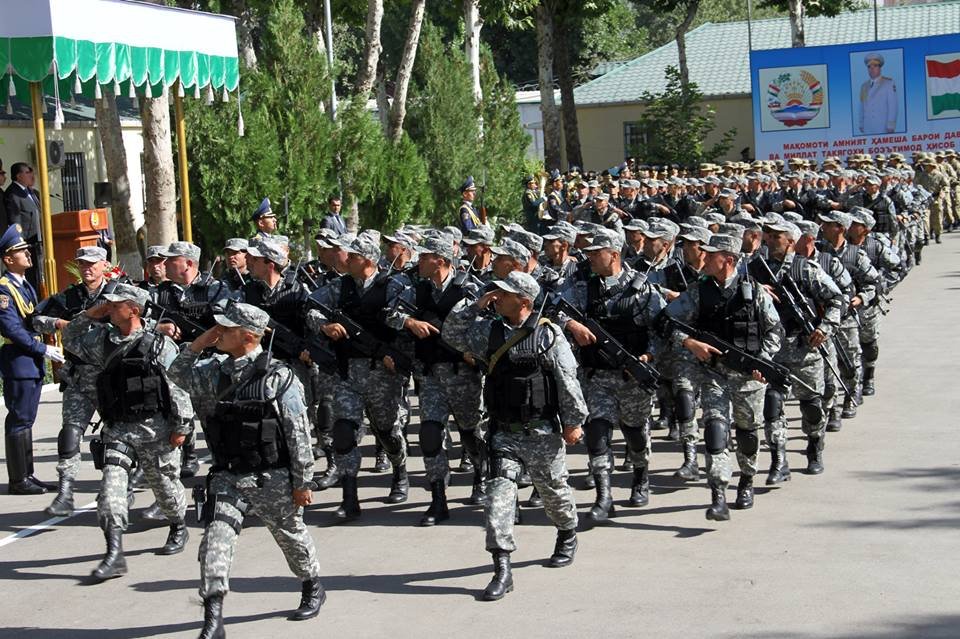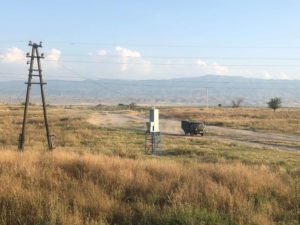Several American media outlets have reported that China is building a second military base in Tajikistan. This development would further China’s presence in the country, making it more than merely economic. However, the actual presence of China in Tajikistan is denied by some sources. Officially, China is only building a joint-use police station and the presence of even the first military base has been categorically denied. This article attempts to decipher the situation.This article was originally published on Novastan’s French website on 1 November 2021. The question of China’s potential second military base in Tajikistan has generated a heated debate among observers of both countries, without a clear answer. According to Radio Free Europe and The Diplomat, China is funding the construction of a second military base in the Wakhan Valley, bordering Afghanistan. The Tajik Parliament seems to have given its approval on October 27.
Radio Free Europe also reported that Tajikistan has offered its Chinese neighbour full control over the first base located south of Murghob, in the southeast of the country. The Chinese embassy in Tajikistan has allegedly published a declaration on that matter. According to these claims, China could soon have two full-fledged military bases in a neighbouring country, which is unprecedented. The existence of the first base was revealed by the Washington Post in the early 2019 investigation.
A Base Financed by Beijing
Things might be slightly more complicated. “The complete handover has not been confirmed by the Tajik government, and the original declaration is nowhere to be found”, says Tajik political scientist Parviz Mullojonov in a statement to Novastan. The Tajik media outlet Asia Plus reports that this base is intended for use by the “rapid response unit of the Ministry of Internal Affairs’ Anti-Organized Crime Department”. Furthermore, while the funding would indeed be Chinese – amounting to 100 million somoni (£5.1 million) – the base is not going to be used by the Chinese military. “This military building is Tajik – not Chinese. Tajikistan has certain obligations made with its allies, particularly from the Collective Security Treaty Organization (CSTO, Russian-dominated – ed.)”, says Guzel Majtdinova, a professor of international relations at the Russian-Tajik Slavic University. “Without the agreement of its partners, Dushanbe does not have the right to create military bases for foreign states. Tajikistan abides by this rule.”Sputnik, a Russian media source, offers another perspective on China’s presence in Tajikistan. Since this base is Chinese-funded, it is “quite unlikely that the ‘red dragon’ will not seize the opportunity to send a small contingent of military specialists, or at least a few observers and scouts wearing coveralls”.
The Lack of Transparency in Chinese Decision-making
Tajik authorities have maintained their claims that China does not have a permanent military base on Tajik soil. China is reluctant to divulge any information. “Whenever Tajikistan signs military agreements with Russia or other Western countries, some details are always disclosed. But the Chinese are totally opaque”, laments Parvis Mullojonov, a Tajik political scientist. He assumes that both armies are going to use both bases, although the exact division remains unknown.
Afghanistan as the Sole Common Denominator
In fact, the Taliban’s rise to power in Afghanistan is under scrutiny by Beijing. “Not only is China strengthening its military presence on Xinjiang’s borders, but it also has made sure, through direct conversation with the Taliban, that both countries can directly discuss regional security issues”, says Hashim Ali, a researcher in journalism and communication at Shanghai Jiao Tong University. “Central Asia’s security depends largely on Afghanistan’s stability. Its central position could make it a rapid communication channel between post-Soviet states and South Asia”, Guzel Majtdinova asserts. “For China, Afghan natural resources are also important. Afghanistan could become a potential route for the New Silk Roads”, she adds. “China has a strategic vision. The possibility that it could use these bases for its army in the future cannot be ruled out. For the time being, however, these border posts are there for Afghanistan”, Parvis Mullojonov concludes. “China’s political interests in neighbouring countries are the reason why it strives to secure its investments”, adds the Tajik political scientist. In fact, China is involved in every sector of the Tajik economy.
Etienne Combier Editor-in-Chief of Novastan
Translated from French by Andreï Fedorovsky
Edited by Grace Mitchell
For more news and analysis from Central Asia, follow us on Twitter, Facebook, Telegram, Linkedin or Instagram.
 China’s Military Expansion in Tajikistan
China’s Military Expansion in Tajikistan 




Daniel, 2024-12-9
Where it’s construction First base in Tajikistan , I think it’s rumors .. Because there is nothing showing on map …
Reply